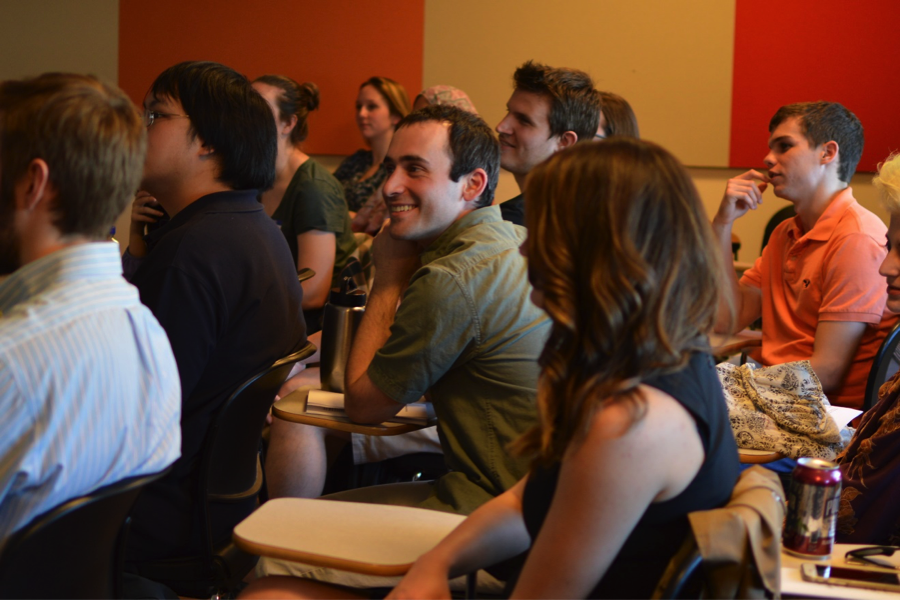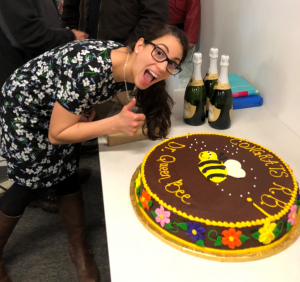Written by Rachael Bonoan, Biology Ph.D. 2018
Post-doctoral Researcher, Tufts University and Washington State University
There are two main reasons why I chose Tufts: collaboration and community. When picking my graduate school, I chose based on the Biology Department specifically. Now, after having been at Tufts for four years, I can say that these two reasons also apply to Tufts in general.
Collaboration: I loved that the Biology Department was collaborative, not competitive. Since we are one Biology Department, there is a range of expertise: from DNA repair to animal behavior, there is likely someone that can help with any project you propose. There are grad students that are co-advised and many labs collaborate. I am currently working on a project with the Wolfe Lab, a lab that studies microbial communities in fermented foods! I am working with the Wolfe Lab to determine if honey bee diet affects the community of microbes that live in the honey bee gut.
In general, I find the atmosphere on the Tufts campus to be a collaborative one rather than a competitive one. There are opportunities for grad students to collaborate with labs outside of their own department. Tufts even has an internal grant, Tufts Collaborates, which is specifically for this purpose! In my department, I know of biologists who work with chemists, engineers, and computer scientists.

Community: Even though we are divided into two buildings, the Biology Department strives to stay united. Every Friday, we have a seminar with cookies and tea before, and chips and salsa after. After seminar, I have the chance to catch up with faculty, staff, and students that work in the other building.
Outside of my department, the Tufts Graduate Student Council (GSC) strives to create a sense of community within the grad students. There are monthly GSC meetings where you can meet other grad students, hear about things going on, and voice your own opinions. The GSC also hosts academic, social, and community outreach events. Just last month, the GSC held their annual Graduate Student Research Symposium (GSRS). This symposium is for all grad students on the Tufts University Medford/Somerville campus and School of the Museum of Fine Arts. The GSRS is not only a place to meet other grad students, but it’s a place where you can learn about all the cool research happening at Tufts, and maybe find a collaborator!

A couple other reasons specific to me: I grew up in a small town and while I enjoy visiting the city, I am not much of a “city girl.” The location of Tufts is great for the small-town girl in me: it’s easy to visit the city but it’s also easy to find beautiful places to hike and enjoy nature. Just about an hour south of New Hampshire and an hour east of Central Mass, there are plenty of gorgeous hiking trails and mountains within a manageable driving distance.
Since I would one day like to teach at a primarily undergraduate institution, I also like that Tufts has unique teaching opportunities for grad students. There is the Graduate Institute for Teaching where grad students attend workshops on teaching during the summer, and then co-teach a class with a faculty member during the fall. There is also the ExCollege which awards Graduate Teaching Fellowships for students who want to create and teach a class on their own. This coming Fall, I will be teaching my own class on insect pollinators and applying basic science to conservation practices!




